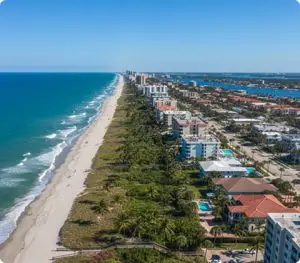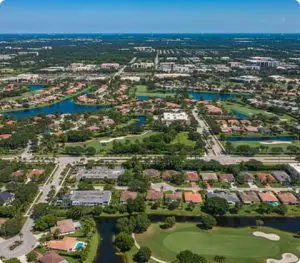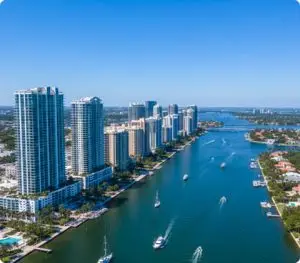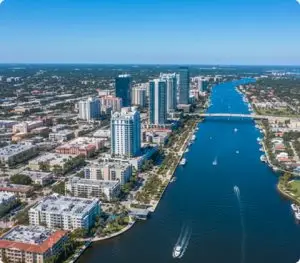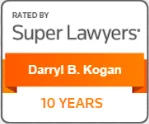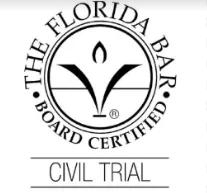Table of Contents
Workers’ compensation insurance replaces an employee’s earnings. It pays for medical care and rehabilitation after a work-related injury or illness in the course and scope of their employment. In some cases, insurers may reject these workers’ compensation cases for various reasons or try to offer a quick, low settlement that will not cover a worker’s injuries.
When this happens in Southern Florida, calling a team of knowledgeable workers’ compensation attorneys in Fort Lauderdale could help you receive the benefits you and your family are entitled to under the law. A group of dedicated Fort Lauderdale injury lawyers are available at Kogan & DiSalvo to investigate your claim and may be able to provide you with valuable insight. .
Fort Lauderdale Workers’ Compensation Insurance
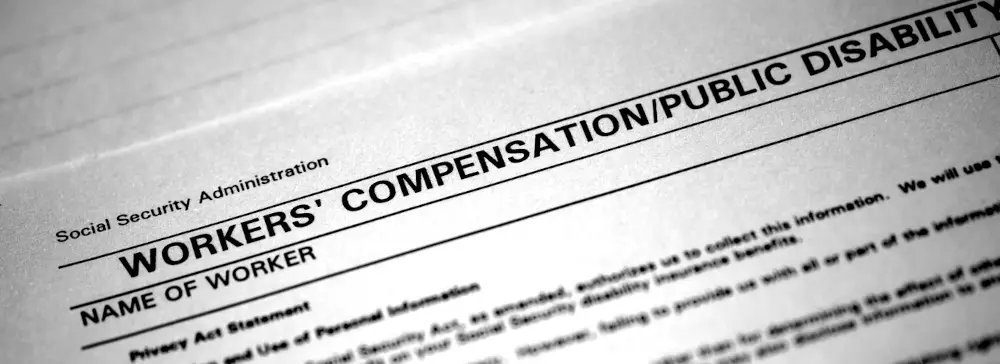
Although workers’ comp—as it is commonly known—sounds like protection for the employee, it is actually more of a security blanket for companies. Workers’ compensation is meant to eliminate personal injury lawsuits brought by employees. In return for giving up the right to sue for the injury, workers do not need to prove the company had any liability for causing harm.
This can significantly reduce a company’s liability for injuries and makes redressing injuries easier to fit into a business plan. In addition, this body of law was created partly due to the imbalance of power between employers and employees on issues like workplace injuries. Highlighting this was the tragic incidents of the Triangle Shirtwaist Fire and the Radium Girls. Both tragedies were instances of unsafe working environments caused by the employer, resulting in the injuries, illnesses, and deaths of hundreds of workers.
What is Workers’ Compensation?
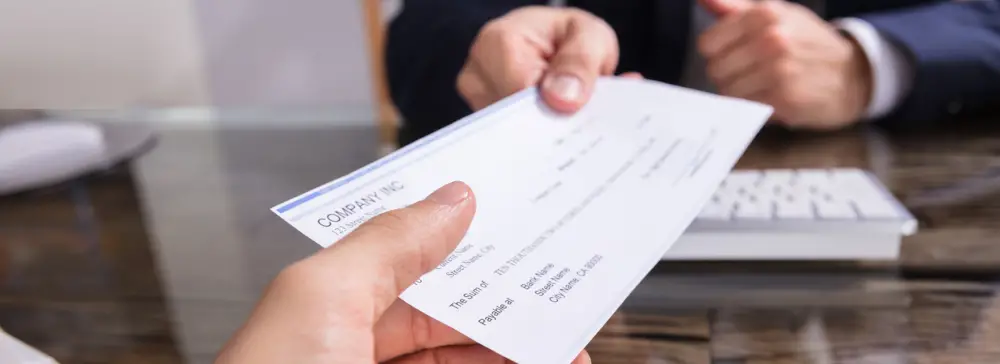
Workers’ compensation law varies from state to state. The laws give a broad range of protection to employees for work-related accidents and illnesses, provides the injured worker a portion of the wages they have lost, and assists with medical bills and other expenses resulting from the injury. This compensation can be awarded even if the employee was at-fault for the accident. It is why it is often referred to as “no fault” insurance. However, regardless of fault, a worker must prove that they were an employee acting in the course and scope of employment when they were injured to recover via workers’ comp.
Who is Covered by Workers’ Comp in Florida?

In Florida, although there are some nuances, any company with four or more employees must have them covered by workers’ compensation insurance–whether they are full-time or part-time.
In addition, Florida has special rules for specific industries that deviate from this norm. For example, in construction, contractors must ensure that subcontractors have workers’ compensation and will be responsible for paying benefits–if an uninsured subcontractor’s employee is injured at work. Agriculture similarly has different standards, such as a different threshold for requiring coverage of regular employees and a separate threshold for seasonal employees.
Coverage of independent contractors is a bit more complicated. Independent contractors are typically not considered employees and are not covered by workers’ compensation. However, an employer referring to a worker as an independent contractor is insufficient to make an employee an independent contractor. Whether a worker is, in fact, an independent contractor will be determined by the “right to control” test.
This test analyzes how much control an employer has over the contractor. It will consider whether the type of work performed is similar to the work being performed by the employer, how much supervision authority the employer has over the contractor, whether the employer provides the tools, equipment, oversight, and several other factors. This test aims to determine if an independent contractor was actually functioning more as an “employee” of the employer than a contractor.
If the court determines this is the case, the independent contractor will be covered by the employers’ workers’ compensation insurance. This misclassification by an employer can be an honest mistake, though it is often an attempt to circumvent the expense of having additional employees covered by their insurance policy.
What Does “Course and Scope of Employment” Mean?
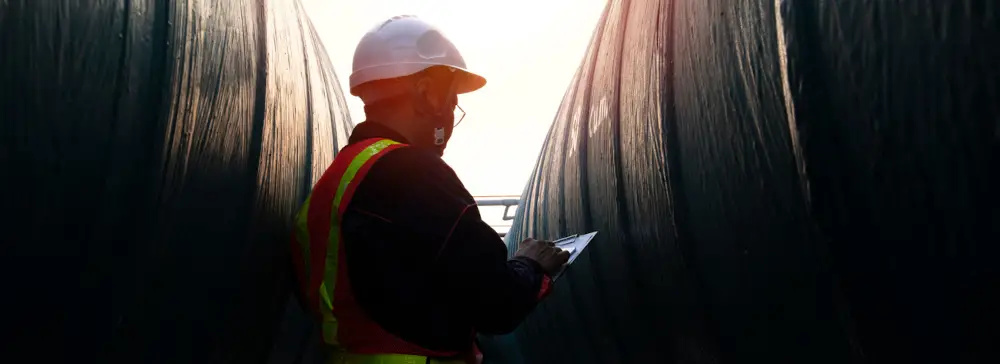
Florida workers’ compensation insurance law requires that an employee is injured in the course and scope of employment to qualify for coverage. This sets specific standards for when someone is considered acting as an employee and thus qualified for workers’ compensation benefits.
An individual is typically considered working in the course and scope of employment during their work hours–if they are performing their duties, completing a task assigned by their employer, or working at another location that is recognized by their employer. Therefore, these factors and others will be weighed to determine whether someone was acting within the scope of their employment at the time of their injury.
Although this may sound straightforward, and it often is, there are important nuances in many cases. For example, a worker could be driving a route outside the scope of their job to run a personal errand while on company time. Depending on the degree of deviation from the route, this may still be considered within the scope of employment. If, for example, it was a brief or minor deviation from their appointed route or employment duty, this could still be considered within the scope of employment.
However, if the employee’s actions took them far outside the scope of their work duties to complete a personal errand–they may be disqualified from workers’ compensation if they were injured during this more significant deviation.
What Injuries are Covered?
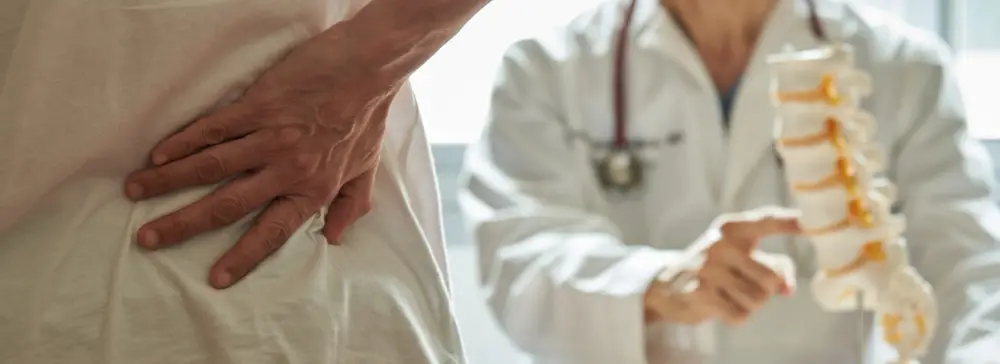
Because of the broad coverage of workers’ compensation and the varying nature of work in Florida, there are many examples of workplace injuries. This includes Miami chefs being burned in the kitchen, an oil worker in the Gulf being burned by chemicals used in oil extraction, or a slip and fall resulting in a concussion on a fishing boat. Just a few additional examples of these injuries can include:
- Lacerations
- Traumatic brain injuries (TBIs)
- Spinal cord injuries
- Broken Bones
- Sprains, strains, and tears
- Crushing injuries
- Burns
- Amputations
- Car accidents
- Truck accidents
- Cuts
- Repetitive motion injuries
- Toxic exposure
- Electrocution
- Noise exposure/hearing loss
- Slips and falls
- Being struck by falling objects
- Fights at work
- Death
When Can a Workplace Injury Qualify for a Personal Injury Lawsuit

Workers’ compensation was designed as an alternative to personal injury lawsuits and typically will be the exclusive means of compensation for a work-related injury in Florida. Because of this, an employee will rarely be able to sue their employer for a work-related injury.
However, workers’ compensation does not cover an employer deliberately injuring an employee. For this, an employee would need to go through a personal injury lawsuit. In addition, a third party may be liable for the employee’s injury and can be sued outside of the workers’ compensation case. Depending on the circumstances, this may be done in addition to or instead of a workers’ compensation claim.
Common third-party liabilities include
- Premises liability: When an employee is injured due to an unsafe condition on a worksite that the employer does not own, they may be able to file a premises liability claim against the owner of the property where they were injured.
- Vehicular accidents: This includes filing a claim against an at-fault driver for an accident that occurred during work.
- Dangerous equipment: Some jobs, such as the fishing, construction, manufacturing, or oil extraction industries, use equipment that can be dangerous even if used properly. If an employee is injured while on the job, they may be able to file a claim against the owner or manufacturer of the equipment that hurt them.
What Does Workers’ Compensation Cover?
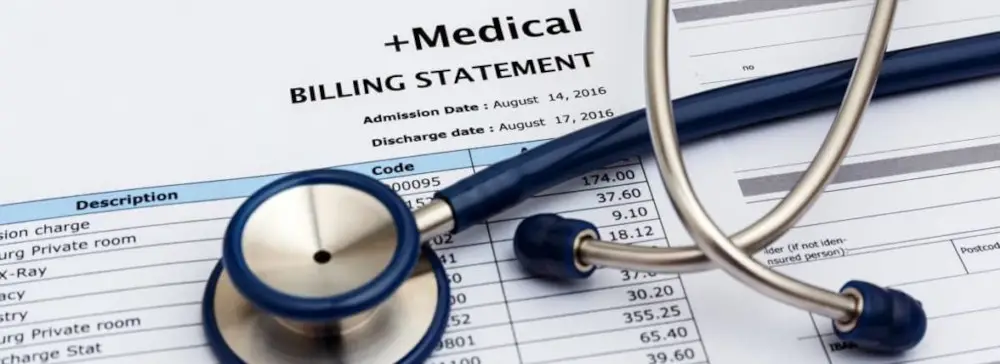
Workers’ compensation benefits can include:
- Wage replacement for money lost while out of work due to work-related illness or injury.
- Physical therapy and other rehabilitative services required to recover from the work-related illness or injury.
- Hospitalization and other medical bills from the work-related illness or injury, i.e., prescriptions, prostheses, and medical tests from specialists
- Mileage reimbursement.
- Reemployment services.
- Disability benefits of two-thirds of the average weekly wage to offset lost income due to work-related illness or injury.
- Death benefits
There are several different types of disability benefits, each designed to compensate a worker for different timelines and levels of disability. This includes:
- Temporary total benefits: When a worker is temporarily completely disabled but is expected to be able to return to work in the future
- Permanent total benefits: When a worker is completely disabled and is not expected to recover enough to be able to support themselves and their families.
- Temporary partial benefits: When a worker has been medically cleared to return to work but has not yet reached maximum medical improvement and can earn 80% or less than their previous wages.
- Permanent impairment benefits: When a worker has reached maximum medical improvement but still suffers a psychological or physical impairment and is not expected to improve any further; and
- Death benefits: Should a death result from a workplace injury within a year of the accident or five years of a continuous disability, survivors can receive benefits to cover funeral expenses and dependence benefits up to $150,000.
These can be complex calculations—including the speculative difference between the lifelong earnings of an injured worker before and after the injury. This will need to be proven with evidence and arguments.
Evidentiary Issues in Workers’ Compensation

Whether going through insurance or bringing your case to court, evidence is required. It includes proof that you were an employee (or independent contractor functioning as an employee) and that your illness or injury arose within the scope of your employment. After establishing your status as an employee, you will need to show proof of your illness or injury and how it was connected to your employment.
Insurance companies, as previously mentioned, are financially incentivized to deny or minimize claims to avoid or lessen a payout. Common defenses include:
- The accident was not work-related.
- An illness or injury is due to a pre-existing condition.
- The worker is not actually injured or injured less than they are claiming to be.
- The accident happened due to drug use.
- The worker failed to use safety equipment that the employer provided; and
- The claim is fraudulent.
Proving that you were injured can include photos of the site of the injury, history of the same type of accident injuring other workers, surveillance video, your own account, and testimony from coworkers who may have witnessed the accident or the exposure causing the illness.
If you are injured, documenting the conditions of the site of the injury is a good idea. Remember that evidence can disappear, surveillance footage will often be deleted, and witnesses may move or forget. Even your own account may be more convincing if you create a detailed account–describing the event in the immediate aftermath.
After you have reported your injury, seek immediate medical treatment. It will help document the occurrence and extent of the injury in a medical report. Additionally, you can seek out the care of a specialist who is familiar with workers’ compensation reports. This doctor will order the correct diagnostics and can help to ensure that the evidence will be documented appropriately. This specialist may also be called upon later to provide testimony regarding your illness or injury.
In the case of an illness that developed over a long term while employed, an injured employee will need to be able to tie the causation of their illness to exposure from work. For example, an unsafe working environment can cause many cancers. Yet, the causality link is often not clear. This can be especially difficult when the working conditions worsen a pre-existing condition.
Further complicating matters are the many non-work exposures that may have been an alternative cause in the years between the initial exposure and illness. For example, living in a neighborhood with a high instance of cancer near a diesel bus depot, waste incinerator, or other sources of carcinogens. In these cases, you should speak with an experienced attorney.
Reporting Injury and Illness in Fort Lauderdale
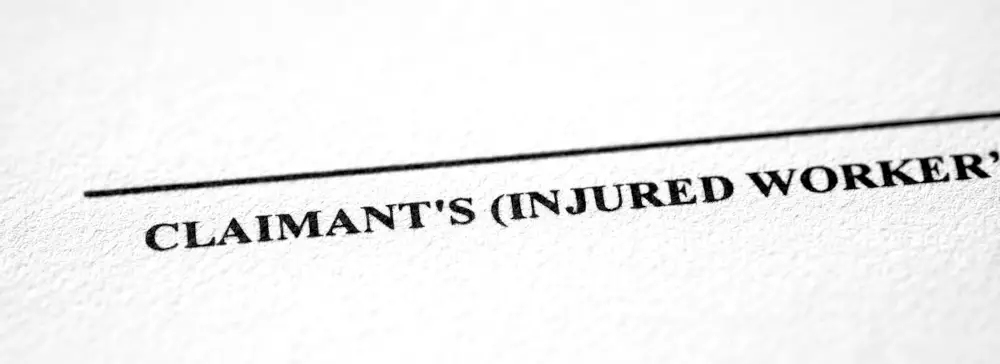
To initiate a workers’ compensation claim, an injured worker must submit their WC-14 form and will then need to submit a copy of this to their employer and insurance carrier. A person must submit their claim to the Florida Division of Workers’ Compensation as soon as possible, even though Florida law allows two years. The claim requires information on how and where the event happened, its cause, the identities of witnesses and documentation of the harm.
A person must report the injury to their company within 30 days. After 30 days, they cannot file a claim unless there are special circumstances. The insurance carrier has 30 days to approve, require additional information, or deny the claim. The person also must immediately arrange to see the insurance carrier’s doctor. If the patient chooses, they may see a doctor of choice, but that can happen only once under Florida law.
Can You Appeal a Workers’ Compensation Denial?

If the employee’s injury did not happen in the course of employment, the injury or illness was pre-existing and not exacerbated at work, or a physician’s incorrect decision released the claimant to go back to work – the government may deny their claim.
If an injured worker is denied workers’ compensation, they have the right to raise the issue with the insurance company in mediation. If the issue is not resolved, the employee can file a Petition for Benefits to the Judges of Compensation Claims in the Florida Workers’ Compensation Appeals Board. The Florida Office of Insurance Regulation can then review their claim. The final resort is to ask the First District Court of Appeals to hear the case.
A case at the worker’s compensation appeal board can include filing the case, motion practice, and other aspects of legal proceedings that would ordinarily be seen in other courts.
Fully Understand Your Legal Rights and Potential Compensation

If you are considering a workers’ compensation claim in Southern Florida, a workers’ compensation attorney in Fort Lauderdale with years of experience can inform you on what is compensable and at what rate. In addition, they can advise you on how your injuries will affect your lifetime earning potential, which doctors to see, and the typical settlement for this type of injury in your jurisdiction.
This experience is critical as employers, and insurance companies are financially incentivized not to pay. They will often attempt to offer a fast payout for far lower compensation. We recommend that you speak with an attorney before approaching an insurance company regarding a settlement. It’s essential that you fully understand your legal rights and potential compensation.
How a Fort Lauderdale Workers’ Compensation Attorney Could Help

While an attorney is not required for a workers’ compensation claim, it is highly advisable to speak with a knowledgeable workers’ comp lawyer from Kogan & DiSalvo if you are injured or developed an illness from your working conditions. An experienced attorney can provide context to the potential value of a settlement before speaking with an insurance company. Additionally, if your claim receives a denial, appealing an unfavorable decision is a technical and complex process requiring legal knowledge and experience.
At Kogan & DiSalvo, we have years of experience learning, not just the law but also how it is interpreted by insurance companies and courts in Fort Lauderdale, Broward County, and Southeast Florida. We can help to inform your decisions regarding a medical specialist and otherwise documenting your injuries. We can also help you consider what rehabilitative care will be available—and consult with you when it makes sense to not accept a settlement offer and press your rights in court.
Contact Us Today about Your Workers’ Compensation Case
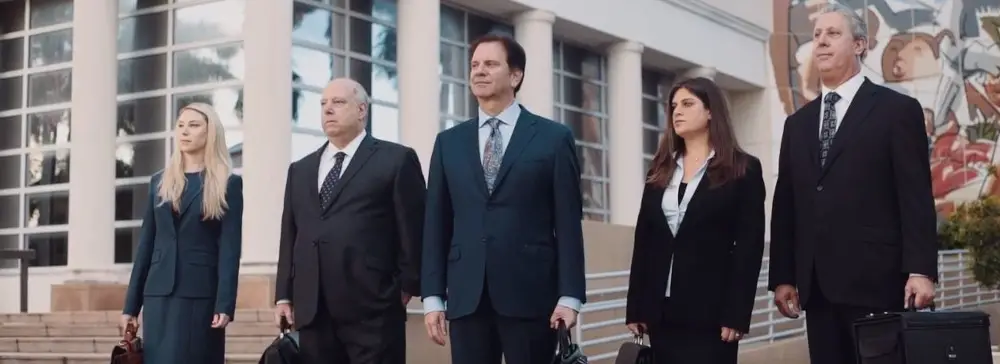
Between identifying and gathering evidence, filing documents, and making decisions based on the law and circumstances of the case, workers’ compensation can become complicated legal matters. Contact us if you have any questions. In addition, many work-related injuries that lead to a workers’ compensation consultation will ultimately result in a personal injury lawsuit, such as against a negligent third party. Should this be the case, the knowledgeable Fort Lauderdale personal injury attorneys at Kogan & DiSalvo will be able to handle your personal injury lawsuit with the same skill and experience we can bring to your workers’ compensation claim. Schedule a free consultation today.
 (800) 707-9111
(800) 707-9111
 Call
Call



